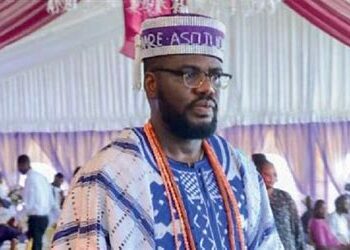Late in the 15th century, Portuguese traders began to show up on the coast of what is now Nigeria. They came looking to buy a number of goods but over time, one particular trade would dominate everything else – slaves. This demand for slaves by the Portuguese presented Oba Ozolua (“The Conqueror”) with a dilemma. He was in the middle of several wars of expansion that enlarged his Benin Kingdom. This also meant that he needed a steady supply of able-bodied men with which to wage war. But he also needed weapons which the Portuguese were willing to hand over in exchange for slaves. Sell men and get weapons in exchange but be short of men with which to fight wars – how do you square this circle? Oba Ozolua’s solution to this dilemma was to sell only women and ban the sale of men. This ban lasted for 200 years with only a brief interruption during the reign of Oba Akengbedo.
I had the privilege of being invited as a guest speaker at a recent workshop in Benin City on the root causes of human trafficking in Edo state. It is one thing to hear about this problem in the abstract from far away but it is quite another to meet the people on the ground fighting hard to get a handle on what is not a multi-faceted issue. The numbers are grim – since November 2017, around 3,700 people have returned to Edo state from North Africa after failing to make it across to Europe. There are currently, by conservative estimates, around 60,000 Nigerians in Libya with about half of them thought to be from Edo state.
The International Organisation for Migration (IoM) estimates that 11,000 Nigerian women landed in Sicily, Italy in 2016 with 80 per cent of them ending up as prostitutes.
My theory is that the decision to only sell women, and not men, as slaves, for better or worse, was a devaluation of women that continues to echo till today. Whether or not anyone agrees, the point is that Edo state has a serious problem to solve. As Governor Obaseki said himself, it is a cancer eating away at the state when able-bodied men and women are risking everything just to leave the state and the country. But if the state ever had an opportunity to tackle the problem, it is now. The triumvirate of the Governor, the Attorney General and the Oba of Benin gives Edo state a unique combination of powerful and influential people who understand the problem and are willing to take it on.

With the full backing of the Governor, the Attorney General, Professor Yinka Omorogbe, has set up the Edo Task Force Against Human Trafficking (ETAHT). They do the things you might expect – receive those who have returned from being trafficked and try to resettle them with skills training and such like. But they also do the much harder work of persuasion.
What do you tell a young woman who can see with her own eyes that a woman who went abroad to Italy has returned to build a nice big house in Benin? Well, you try to make her understand that if the house costs $100,000 to build, that probably translates to sleeping with 10 men every day for years before you can raise that kind of money. It is not an appealing prospect and many young women stop and reflect when it is presented to them in this way.
It also involves coming to terms with the various places in the culture where the scourge has managed to take refuge and working to dislodge them. The reduced status of women in the society cannot be denied – it is yet another way through which sex trafficking is perpetuated.
Co-opting the new Oba of Benin into the fight was a masterstroke by the government. Benin people respect the institution and will listen when the Oba speaks. He is indispensable in the fight and he has shown himself willing to confront the problem. Oba gha to kpe re.
I spent two days in Benin and if I came away with one feeling it was that I was in the midst of serious people. They understand the gravity of the problem and are under no illusions as to how incredibly difficult the task at hand is. I found the Attorney General to be energetic and fully committed to the cause. She has also recruited well for the ETAHT team judging by the people I met and spoke to. Most of the government side is in place and so what’s needed now is support, funding and some good luck. Sometimes you do everything you can and hope for the best.
Whether the problem goes back to the 15th century or the more recent past, I pray that history will be kind to those working hard to fix it now and it will be said that it was in 2018 Edo state began to turn the corner and undo the damage of the past. History is not destiny.








